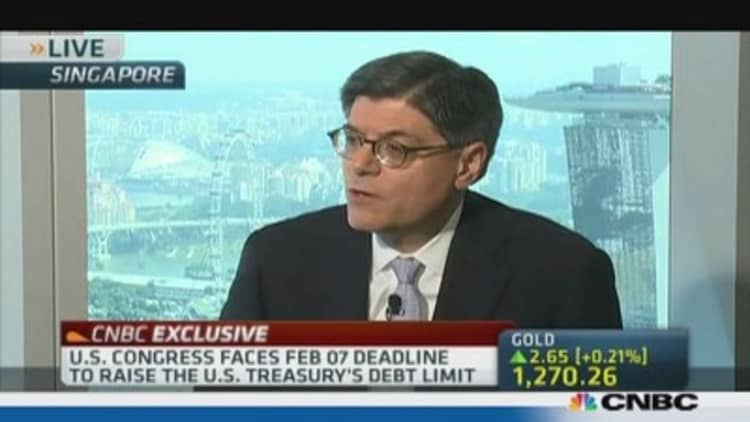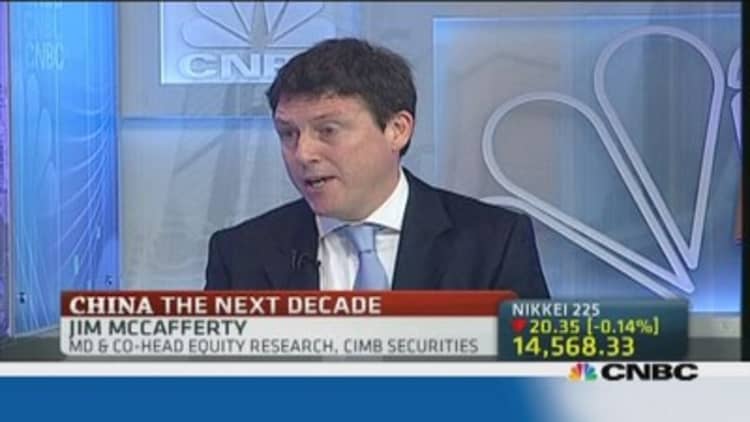Being first in China hasn't always paid off. While it gets easier to buy China's stocks, some of the earliest foreign investors in the mainland's B-share market are saddled with an illiquid investment.
Proving that while the early bird may get the worm, good things also come to those who wait, Deutsche Bank last week launched its db X-trackers Harvest CSI 300 China A-Shares Fund. It is the first U.S. exchange traded fund to directly hold A-shares, rather than derivatives and is seen as another sign of the mainland opening up its markets to foreign investment.
"The B-share is kind of a relic from the past," said Andy Xie, an independent economist.
(Read more: Too soon to dismiss China's 'vague' plenum?)
The markets in B-shares were founded in the early 1990s in Shenzhen and Shanghai and offered hard-currency shares in Chinese companies at a time when capital controls prevented foreigners from buying into the yuan-denominated A-shares.

Once China companies began listing overseas, B-shares became passé, Xie noted, adding that large institutional investors are among those holding the thinly traded B-shares.
"I think they're stuck," he said. "Nobody trades B-shares anymore."
Currently, there are around 53 B-shares in Shenzhen with a market value of around 88 billion yuan ($ 14.4 billion), compared with 468 mainboard A-shares with a market value of around 3.4 trillion yuan. In Shanghai, there are 54 B-shares with a market capitalization of around 784 billion yuan, compared with 943 mainboard A-shares 151 trillion yuan, as of the end of October.
(Read more: Will China's Plenum be a watershed event for stocks?)
"I don't think the government had bad intentions," said Ben Cavender, an analyst at China Market Research Group. "The financial regulations are evolving from unsophisticated to relatively more sophisticated and that means vehicles tried in the past could get dropped," he said.
"I suspect that one way or another, the B-share market is going to disappear, but I don't know exactly how they're going to handle dealing with it," Cavender said.

For at least the past decade, fresh hopes that B-shares would be merged with their A counterparts have regularly surfaced – only to be dashed.
Late last year, it looked as though the long-suffering B-share holders had caught a break: CIMC relocated its B-shares into Hong Kong-listed H-shares. But any expectation of an imminent end to B-share markets proved exaggerated as no other companies have since followed suit.
"It's languishing again partly because the market is weak, so it's not easy to do an IPO," Xie said, adding it also wasn't clear if all the B-share companies are qualified for H-share listings.
(Read more: Chinese stocks: Time to take profit?)
China's leadership change this year also put policy on hold, noted Jackson Wong, vice president at Tanrich Securities.
"You have to hope," Xie said. "They represent assets. These assets are valuable. Eventually the value will come through. It takes time. It takes many years."
—By CNBC.Com's Leslie Shaffer; Follow her on Twitter @LeslieShaffer1

